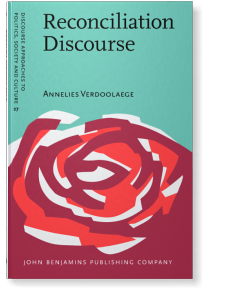Reconciliation Discourse
The case of the Truth and Reconciliation Commission
This volume is a research monograph analysing the South African Truth and Reconciliation Commission (TRC) from an ethnographic/linguistic point of view. The central proposition of this book is that the TRC can be regarded as a mechanism that leads to the hegemony of specific discourses, thus excercising power. The analysis illustrates how, through a certain type of reconciliation discourse constructed at the TRC hearings, a reconciliation-oriented reality took shape in post-TRC South Africa. Basically, the study points to the long-term implications a truth commission can exert on a traumatised post-conflict society. The book is unique on several levels: TRC discourse is explored in-depth on the basis of personal stories from TRC testifiers; a combination of Poststructuralist and Critical Discourse Analysis approaches form the theoretical foundations; and an extensive bibliography provides an impressive database of TRC publications.
[Discourse Approaches to Politics, Society and Culture, 27] 2008. xiii, 238 pp.
Publishing status: Available
© John Benjamins Publishing Company
Table of Contents
-
Preface | pp. xi–xii
-
Acronyms | p. xiii
-
1. Introduction | pp. 1–6
-
2. The South African Truth and Reconciliation Commission | pp. 7–30
-
3. The TRC Archive | pp. 31–42
-
4. The sample | pp. 43–52
-
5. Layering and HRV discourse: A critical perspective | pp. 53–140
-
6. Reconciliation discourse, truth and society | pp. 141–166
-
7. Exercising power through discourse | pp. 167–183
-
8. Towards a conclusion | pp. 185–192
-
-
Index | pp. 229–238
“
Reconciliation Discourse is unique on several levels: TRC discourse is explored in depth on the basis of personal stories from TRC testifiers, a combination of Poststructuralist and Critical Discourse Analysis approaches form the theoretical foundations, and an extensive bibliography provides an impressive database of TRC publications.”
On SirReadaLot.org, April 2008 issue
“Annelies Verdoolaege's book-length critical discourse analysis of the South Africa Truth and Reconciliation Commission's Human Rights Violations (HRV) hearings is a welcome contribution to the extensive bibliography on the truth commission and reconciliation; it provides important new perspectives on the hearings and enriches our understandings of the relationship between discourse and reconciliation.”
Susan Lawrence, George Mason University, USA, in Language in Society, Vol. 38, issue 2 (2009).
“I endorse the view that Verdoolaege’s study unpacked aspects of the TRC that scholars and researchers neglected to evaluate. As a consequence of Verdoolaege’s invaluable research outcomes, our understanding and perspective of the TRC process has been deepened and enhanced. Verdoolaege’s book is an important critical text for everyone in the social sciences and humanities, particularly for those in the specific field of language and linguistic studies.”
Muhammed Haron, University of Botswana, in Peace Review 24, pages 122-125.
Cited by (25)
Cited by 25 other publications
Lester, Claire-Anne
Milani, Tommaso M. & John E. Richardson
Bentrovato, Denise
McCallum, Harry
Mussi, Francesca
Mussi, Francesca
Okulska, Urszula
Tessema, Marshet Tadesse
de Costa, Ravi
Flowerdew, John
Tovares, Alla V
de Smet, Sofie, Marieke Breyne & Christel Stalpaert
Rae, Maria
Renner, Judith
Wallmach, Kim
Beitler, James Edward
Odom, Glenn A.
Spring, Kimberly
Verdoolaege, Annelies
Verdoolaege, Annelies
Verdoolaege, Annelies
Verdoolaege, Annelies
Wodak, Ruth & John E. Richardson
This list is based on CrossRef data as of 5 september 2024. Please note that it may not be complete. Sources presented here have been supplied by the respective publishers. Any errors therein should be reported to them.
Subjects
Communication Studies
Main BIC Subject
CFG: Semantics, Pragmatics, Discourse Analysis
Main BISAC Subject
LAN015000: LANGUAGE ARTS & DISCIPLINES / Rhetoric
